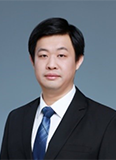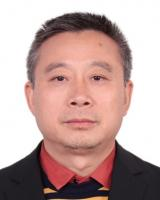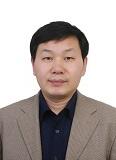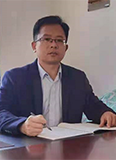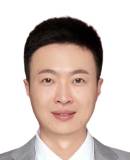
Speakers
KEYNOTE SPEAKERS
| Prof. Ting Yang Tianjin University, China Prof. Ting Yang, doctoral supervisor, is a discipline leader in the School of Electrical and Information Engineering, Tianjin University. He is the deputy director of the national "distributed energy and micro grid" international science and technology cooperation base and the deputy director of Tianjin "Energy Internet” International Joint Research Center. As the largest contributor, he has won two provincial and departmental science and technology progress awards and some enterprise science and technology progress awards. He has published more than 100 SCI/EI papers, 4 monographs and 2 international invention patents in top academic journals in China and abroad. He has served as the session chair of several IEEE international conferences. He also served as the editor in chief or member of the Editorial Committee of several SCI journals. He is the special editor in chief of "Application of artificial intelligence in power system and energy Internet"(which won him the "Outstanding Special Editor Award" in 2018) of “Journal of Power System Automation”, and the special editor in chief of "Ubiquitous Power Internet of Things (UPIOT)" of “Journal of Power Construction”. He is now the deputy director of circuit and system branch of China Electronics Society, the national director of sensor sub committee of China Instrumentation Society and a member of the theoretical electrician special committee of China Electrical Engineering Society. His main research interests include energy & power, Internet of things, artificial intelligence and intelligent manufacturing. |
| Prof. Daowen Qiu Sun Yat-sen University He has published over 130 papers in peer-review journals, and over 25 conferences papers. More specifically, (1) He has systematically studied a number of different QFA (quantum finite automata) models, and solved the decidability of equivalence and minimization of these QFA models. In particular, we have answered the problems of how to minimize QFAs proposed by Moore and Crutchfield. Also, he has studied some properties of 2QFAC, quantum pushdown automata, and quantum Turing machines. (2) He has proved the characterization of all Boolean functions that can be solved by quantum 1-query algorithm. (3) He has studied quantum states discrimination and quantum cloning machines, and he has derived some bounds on unambiguous discrimination and minimum-error discrimination (some bounds are optimal to a certain extent), and some relationships between unambiguous discrimination and minimum-error discrimination have been clarified. Also, he has established a generic machine model of probabilistic cloning and deleting, and proposed a universal probabilistic deleting machine. (4) He has studied quantum teleportation and superdence coding based on different entangled states (W-states). (5) He has studied semi-quantum cryptography and proved that a semi-quantum key distribution protocol is unconditional security. (6) He has discovered some essential connections between quantum logic and models of computation, and he has established residuated lattice-valued automata theory. (7) He has established a fundamental framework of the supervisory control for fuzzy discrete event systems (FDES). |
| Prof. Wanyang Dai Nanjing University, China Wanyang Dai is a Distinguished Professor in Nanjing University and the Chief Scientist in Su Xia Control Technology. He is the current President & CEO of U.S. based (Blockchain & Quantum-Computing) SIR Forum (Industrial 6.0 Forum), President of Jiangsu Probability & Statistical Society, Supervisor Board Chairman of Jiangsu Applied Statistics Society, Chairman of Jiangsu BigData-Blockchain and Smart Information Special Committee. He received his Ph.D. from Georgia Institute of Technology in USA. He was an MTS and principal investigator in U.S. based AT&T Bell Labs (currently Nokia Bell Labs) with some project won “Technology Transfer” now called cloud system. He was the Chief Scientist in DepthsData Digital Economic Research Institute. He published numerous influential papers in big name journals including Operations Research, Operational Research, Queueing Systems, Computers & Mathematics with Applications, Communications in Mathematical Sciences, Computer and Mathematical Modelling of Dynamical Systems, and Journal of Computational and Applied Mathematics. He received various academic awards and has presented over 40 keynote/plenary speeches in IEEE/ACM, big data and cloud computing, quantum computing and communication technology, computational and applied mathematics, biomedical engineering, mathematics & statistics, and other international conferences. He has been serving as IEEE/ACM conference chairs, editors-in-chief and editorial board members for various international journals ranging from wireless communication, pure mathematics & statistics to their applications. Title: Metaverse & 6G motivated policy computing with federated learning and applications Abstract: We present our recent study concerning metaverse & 6G motivated policy computing and applications. The dynamics of our model can be represented by a unified optimal control system with federated learning, which is subject to the constraint of a stochastic differential equation (SDE) with boundary reflection. This system can be used to describe the computer buffer dynamics and interact with the distributed data storage blockchain system through the computer central processing unit (CPU). The objective functional can take different forms corresponding to their associated practical systems. The optimal and Nash equilibrium control policies are proposed through designing corresponding algorithms in a federated learning way with the time evolution. The policies cover both conventional parameter control (e.g., drift and diffusion control) policies and jump size control (e.g., impulse and singular control) policies. Besides metaverse and 6G, our study can also be applied to quantum computing, Internet of vehicular (IoV), etc. In these systems, our policies may represent the demand/resource rate, pricing, and sequential batch assembly policies. Simulation examples will be provided to illustrate the effectiveness of our developed algorithms and policies. |
| Prof. Huajun Dong Dalian Jiaotong University, China
Huajun Dong, is a professor and master tutor of Dalian Jiaotong University. He is currently the Dean of School of Computer and Communication Engineering, Dalian Jiaotong University. Awards and Individual Honors: 1.Excellent Teacher, Dalian Jiaotong University, 2017. 2. "Thousand Levels" of Millions of Talents Project, Liaoning Province, 2015. 3. Third Prize of Natural Science Paper, Liaoning Provincial Natural Science Academic Achievement Award, 2014. 4. Outstanding Teacher, Dalian Jiaotong University, 2013. 5. Outstanding Postdoctoral Researcher, Henan Province, 2013. Research areas: 1. Basic theory of vacuum switching arc; 2. Machine vision application technology. |
| Prof. Yang Yue Xi’an Jiaotong University, China Yang Yue received the B.S. and M.S. degrees in electrical engineering and optics from Nankai University, China, in 2004 and 2007, respectively. He received the Ph.D. degree in electrical engineering from the University of Southern California, USA, in 2012. He is a Professor with the School of Information and Communications Engineering, Xi'an Jiaotong University, China. Dr. Yue’s current research interest is intelligent photonics, including optical communications, optical perception, and optical chip. He has published over 200 journal papers (including Science) and conference proceedings with >10,000 citations, five edited books, two book chapters, >50 issued or pending patents, >200 invited presentations (including 2 tutorial, >40 plenary and >50 keynote talks). Dr. Yue is a Senior Member of IEEE, Optica and SPIE. He is an Associate Editor for IEEE Access and Frontiers in Physics, Editor Board Member for four other scientific journals, Guest Editor for >10 journal special issues. He also served as Chair or Committee Member for >100 international conferences, Reviewer for >70 prestigious journals. |
| Prof. Yanjiao Chen Zhejiang University, China Biography: Yanjiao Chen received her B.E. degree in Electronic Engineering from Tsinghua University in 2010 and Ph.D. degree in Computer Science and Engineering from Hong Kong University of Science and Technology in 2015. She is currently a Bairen Researcher in the College of Electrical Engineering, Zhejiang University, China. Her research interests include ML security, AI in networking, and mobile sensing. Yanjiao has published papers in ACM CCS, IEEE INFOCOM, ICDCS, etc. Yanjiao has served on the editorial board of IEEE WCL and served as TPC member in IEEE INFOCOM, NDSS, ICNP, etc. |
